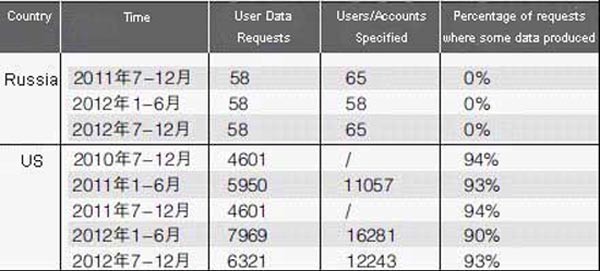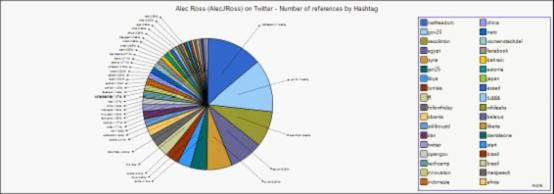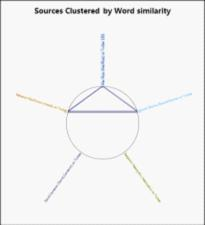Net co-management a fantasy as US tightens reins
- By Shen Yi
 0 Comment(s)
0 Comment(s) Print
Print E-mail China.org.cn, December 28, 2012
E-mail China.org.cn, December 28, 2012
In December 2012, about 150 countries gathered in Dubai to discuss the UN's International Telecommunications Union's (ITU) treaty toward greater Internet controls. On December 13, Terry Kramer, who heads the US delegation, declared at the meeting that US refused to sign the treaty.
The same day, Kramer cited five reasons for the US' objection to the treaty in a US State Department press release. First, the US refuses to sign any regulation that supervises network service providers, the government or private companies. Second, the US refused to make any limits on Internet information flow, including junk mail, as it would potentially impede freedom of speech. Third, the US refused to admit that the ITU would have a positive effect on Internet security. Finally, management should fall under the framework of Internet Corporation for Assigned Names and Numbers (ICANN), the statement said. Finally, the World Conference on International Telecommunications (WCIT) has no right to make decisions concerning Internet use or Internet freedom.
If readers were aliens who just landed on Earth and knew nothing about the Internet, the United States and ITU, they would admire about this passionate speech. They might think the United States is trying its best to protect the security and freedom of Internet from the control of the evil ITU. However, if readers are in fact native to Earth and also happen to know how to search on the Internet, they will find the Google Transparency Report and see the following data:
|
|
|
The "User Data Requests" and "Users/Accounts Specified" in the report are data figures on Google users exposed upon the request of sovereign countries. |
The "User Data Requests" and "Users/Accounts Specified" in the report are data figures on Google users exposed upon the request of sovereign countries. US data requests are not only limited to the United States, but also include other countries who have judicial assistance treaty or diplomatic cooperation mechanism with the United States. From January to June of 2012, the top 20 countries and regions on the list of the percentage of requests where some data was produced were the United States, Japan, Denmark, Brazil, the Netherlands, Norway, Singapore, Switzerland, Belgium, Australia, India, England, Taiwan, Israel, Spain, Chile, Mexico, France, Germany and Argentina, respectively.
The data of the Google Transparency Report revealed the truth behind Kramer's statement: that the Internet only belongs to the United States and it continues to be controlled absolutely by the United States. If the scale is allowed to be enlarged, it can include countries which have the same ideology or have common national interests with the United States. These countries are the 55 countries that refused to sign on to the 2012 World Conference on International Telecommunications. Instead of thinking the Internet doesn't need to be managed, they want to quietly keep it in their own backyards.
The Internet has important strategic value for the United States and its allies. One important function of the Internet is that it can serve as a cheap diplomatic tool with significant strategic utility. It can be used to maintain US hegemony at a time when the country's economic power continues to decline.
|
|
|
Figure 1 |
|
|
|
Figure 2 |
|
|
|
Figure 3 |
The correlation coefficient of MacKinnon and Ross is 0.78, 0.76 for MacKinnon and Obama and is 0.70 for Obama and Ross, indicating a strong correlation. Nevertheless, the correlation coefficient of these three people with Netanyahu and Cameron is around 0.5 to 0.6, showing a medium correlation. A US think-tank said that two accounts can be seen as one when their correlation coefficient exceeds 0.7 or 0.8, or the two accounts may be operated by one team or teams who operate these accounts have strong internal communication.
Besides, Kramer has reasons for highlighting that it shouldn't use international conventions to regulate the behavior of Internet service providers, the government and private companies. During the Arab Spring, private companies including Google provided a platform, via Twitter, to fight against Mubarak's government in Egypt. Users can send twitter by voice messages on fixed phone lines. The service, which was designed by Google for Egypt, launched 48 hours after the Egypt government cut off the Internet to control international activists' movements in Egypt. If there was an international treaty to control this action, Google's behavior would have been illegal. In this case, how can an international treaty be developed if it doesn't align with the national interests of the United States?
Some people may still remember a netizen named Assange, an organization named WikiLeaks and the group of hackers called Anonymous. These three "evils" were taught a lesson when they confronted the United States government. Thus, another reason why the United States refused to sign the treaty was exposed: United States strives to maintain a double standard of "freedom."
Research of publicly available materials shows that there have been a lot of cases where NGOs have accused the US National Security Agency, CIA and FBI of privacy infringement through the use of Internet technology. Unfortunately, private providers who provide outsourcing services for the United States can't be touched. Under the banner of reputation management, the United States developed extensive procedures on how to outsource such services. It established consulting companies in Bahrain and Syria, who provided these "outsourcing services" for how to sway public opinion in cyberspace for human rights activists, NGOs and the governments and regimes they support.
Thus, the debate on WCIT revealed a reality: the Internet is firmly under the control of the United States and its allies. The US uses its technical advantage, public-private cooperation, international mechanisms and ideological conditioning to achieve this. Although other countries have tried to challenge these controls, their effect has thus far been limited. Finally, the United States is unwilling to make concessions easily on the key tools it uses to maintain its hegemony.
Shen Yi is a lecturer at the Fudan University School of International Relations and Public Affairs.
(This article was first published in Chinese and translated by Lu Na.)
Opinion articles reflect the views of their authors, not necessarily those of China.org.cn.









